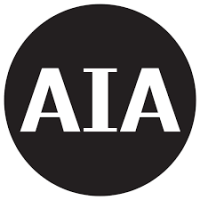How should I appropriately and professionally leave my job?
There is an art to quitting!
It is best to give as much notice as you can, especially with consideration for the responsibilities you have on your current project and that project’s deadlines.
The only hazard to giving a long notice is that some firms will ask you to leave right away rather than working out your notice. They will pay for 2 weeks notice if that is what the firm requires (your firm might have a “rule” about this… in your offer letter or in the Human Resources manual), but ask you to leave the office —- especially if you are working on something that they do not want to have “leaked” to the competition.
So, for example, if the “rule” is 2 weeks notice, but you give them 4 weeks “to be nice”, they might pay for 2 weeks more but then ask you to leave.
Or they may ask you to leave right away and still pay you for the 2 weeks.
If you give them more than 2 weeks notice, that is considered generous … but you might find that the whole process of leaving feels dragged out. However you might prefer that to the feeling that 2 weeks leaves them in a bind to replace you.
It is best to ask your supervisor for an appt time to meet and to have a letter typed up in advance that you give to the supervisor as you say “This has been a very difficult decision for me because I have learned so much while working for you, but I am submitting my resignation today.” Then hand the person your letter. There may or may not be questions about where you are going — it is OK to give them as many details as you care to, or to keep it all vague, generic, and private. They will want to discuss your end date, too.
Always focus on how great the firm is: the people, the opportunities they gave you. IF they ask to do an “exit interview” with you, they may ask for details about why you are leaving … and ask you to be honest. Do not say anything negative. Simply stick to the “it’s not you, it’s me” line of thinking. Tell them that you have known for a while that your real passion is _______ whatever you will do at your next job. Keep adding “thank you’s” to the conversation. Also say that this has been a very difficult decision.
If there is a chance your superiors could find out before you get a chance to tell them (companies often work closely together on projects), definitely send an e-mail or make a call to your new employer to ask for confidentiality.
Leaving a Summer Job
3 questions & responses
- I have a few questions regarding proper etiquette in terms of leaving my summer job on a positive note. I was thinking about writing thank you cards to people that have helped me out, my mentor, my project manager, etc. Is this a correct thing to do? If so, is there anything else I could do? I’m really interested in potentially working at this firm after I graduate and hope to stay in contact! Great Idea. Small paper cards in envelopes (very plain cards), short messages, hand-written, slightly different for each person. It is not required or expected, but it is very correct! Also, on your last day, bring in a dozen donuts or a box of candy or a veggie tray for the whole office. Put it in the lounge/kitchen with a small note of thanks to all.
- I have a light class load for the fall of 2014. I was thinking that I would be interested in a part time internship at an architecture firm in Syracuse. Have you seen other students do that successfully? Yes, students do work part-time for firms in Syracuse or for professors while in school. However, even with your part-time academic hours, you may find that it is very difficult to work more than 5-10 hours a week. To find SU contacts, use the advanced Search feature of http://www.linkedin.com.
- Finally, I was wondering what your thoughts are on putting internship work from the summer into a portfolio, such as renderings I’ve worked on, revit drawings etc. Do employers find this helpful? Or are they mostly interested in studio/school related work? YES, employers want to see any professional drawings/images/model photos that you have created. Even if the design of the building is mundane, employers want to see that you have developed professional quality drawings. However, it is VERY important to get permission from the employer to use the images. Because your portfolio may eventually be posted online, for the world to see, be sure that you get specific permission because some projects are confidential for developer clients and the images can not be shared. You may be unaware of the client’s limits on the project.











